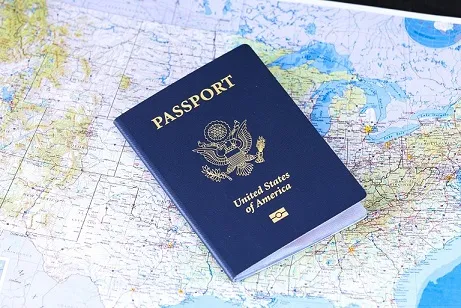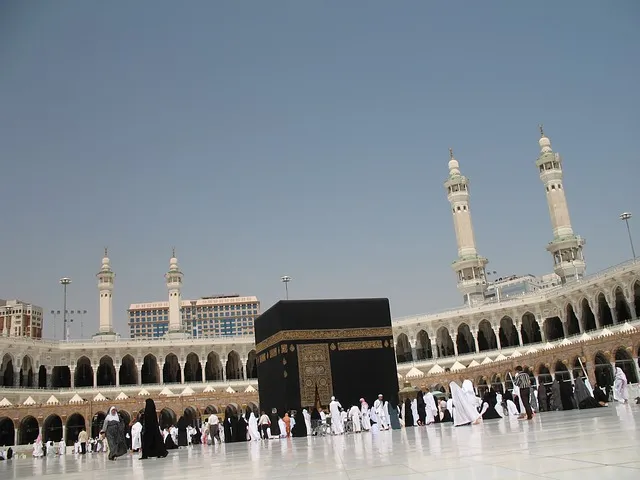
Things to know before visiting Mecca
Mecca—a city revered as the holiest site in Islam—holds a deep spiritual and cultural significance for Muslims worldwide. Every year, millions of pilgrims from different corners of the globe travel to this sacred destination to perform Hajj and Umrah, two of the most important religious obligations in Islam. The journey to Mecca represents not just a physical pilgrimage but also a profound spiritual experience, marking a transformative chapter in the lives of the faithful.
Hajj, one of the Five Pillars of Islam, is an annual pilgrimage that every Muslim must undertake at least once in their lifetime, provided they are financially and physically able. Umrah, while not obligatory, is a highly recommended pilgrimage that can be performed at any time of the year. Both journeys are steeped in deep religious traditions and rituals that bring the pilgrim closer to Allah, fostering a sense of unity and brotherhood among the Muslim Ummah.
Before embarking on this life-changing pilgrimage, there are several crucial aspects to consider. Whether it’s understanding the visa requirements, choosing the best time to visit, or adhering to the local customs, being well-prepared can make your journey smooth and spiritually fulfilling. In this guide, we will cover the essential things to know before visiting Mecca, ensuring you are spiritually, mentally, and logistically ready for your pilgrimage. From packing lists to accommodation tips, and from religious preparations to health precautions, this comprehensive guide will help you navigate your journey with ease.
Visa Requirements and Entry Regulations
When planning your visit to Mecca, understanding the visa requirements is one of the most critical steps in ensuring a smooth pilgrimage. There are three main types of visas available for those wishing to enter Saudi Arabia for religious purposes: Hajj visa, Umrah visa, and the tourist visa. Each visa serves different purposes and has specific requirements, so it’s essential to know which one you need based on the type of pilgrimage or visit you plan.
Hajj Visa
The Hajj visa is specifically issued for the annual Hajj pilgrimage, which takes place during the Islamic month of Dhu al-Hijjah. This visa is available only during the Hajj season and is generally provided through an official Hajj package organized by certified travel agencies. Eligibility for the Hajj visa is limited to Muslims, and each individual is only permitted to perform Hajj once every five years.
To apply for a Hajj visa, you will need:
- A valid passport (with at least six months of validity remaining).
- Proof of vaccinations, including for meningitis.
- A completed visa application form from an approved Hajj operator.
- A non-refundable round-trip ticket and proof of accommodations in Mecca.
It’s important to note that Hajj visas are only valid for travel to Mecca, Medina, and Jeddah, and pilgrims are not allowed to travel beyond these cities.
Umrah Visa
The Umrah visa is more flexible and can be obtained throughout the year, except during the Hajj season. Unlike the Hajj visa, the Umrah visa is available for shorter pilgrimages and can be combined with a tourist visa for extended stays. It’s typically valid for a 30-day stay, giving pilgrims ample time to perform their religious duties.
To apply for an Umrah visa, you will need:
- A valid passport with six months of validity.
- Proof of accommodation in Mecca.
- Proof of round-trip flights.
- Vaccination certificates, especially for meningitis.
Tourist Visa
Introduced more recently, the tourist visa allows visitors to explore Saudi Arabia, including Mecca and Medina, provided they are Muslim. This visa is perfect for those who want to combine their religious pilgrimage with a longer stay to experience Saudi culture. The tourist visa is typically valid for one year with multiple entries and allows up to 90 days per visit.
Application Process and Timing
It’s crucial to apply for your visa well in advance, particularly for Hajj, where demand is extremely high. Ideally, pilgrims should start the process several months before their intended travel date to avoid any delays. The application process involves submitting your visa application through an authorized travel agency or the official e-visa portal for Umrah and tourist visas. Ensure your passport is valid for at least six months beyond your intended stay and keep your vaccination records up to date.
By understanding the visa requirements for Mecca and applying for the correct type of visa, you can avoid unnecessary delays and focus on your spiritual journey.
Best Time to Visit Mecca
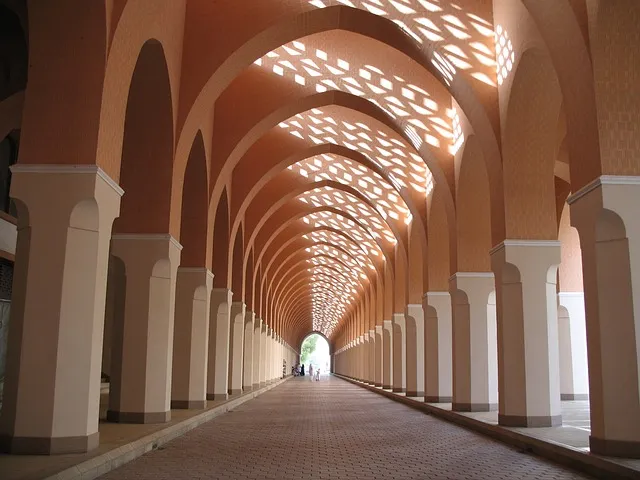
Choosing the best time to visit Mecca depends on the type of pilgrimage you are planning—Hajj or Umrah—and your personal preferences regarding weather and crowd sizes.
Hajj Season
The Hajj pilgrimage is fixed according to the Islamic lunar calendar and takes place during the month of Dhu al-Hijjah. Since Hajj is a specific event with millions of pilgrims attending, the city is incredibly crowded during this time. If you plan to perform Hajj, you must visit during these designated days, typically in the summer months. Dhu al-Hijjah often falls in the hottest months, with temperatures in Mecca soaring above 40°C (104°F). This extreme heat can make the physically demanding rituals more challenging.
Umrah Season
In contrast, Umrah can be performed at any time of the year, except during the Hajj season. The best time to perform Umrah is during the cooler months between November and February, when temperatures range from 20°C to 30°C (68°F to 86°F). These months offer a more comfortable climate for pilgrims, and the crowds are significantly smaller, making it easier to access the holy sites and perform rituals.
Off-Peak Times
For those looking to avoid the intense crowds and heat, visiting Mecca during Ramadan is highly recommended for spiritual rewards, although it can still be busy. For a more relaxed experience, the winter months provide an ideal opportunity to visit, as both the weather and crowd sizes are manageable. Additionally, the weeks immediately following Ramadan and Hajj tend to be quieter, making it an off-peak period for pilgrims.
By planning your trip according to the Mecca weather guide and peak seasons, you can ensure a more comfortable and peaceful pilgrimage experience.
Religious Preparation: Hajj and Umrah Rituals
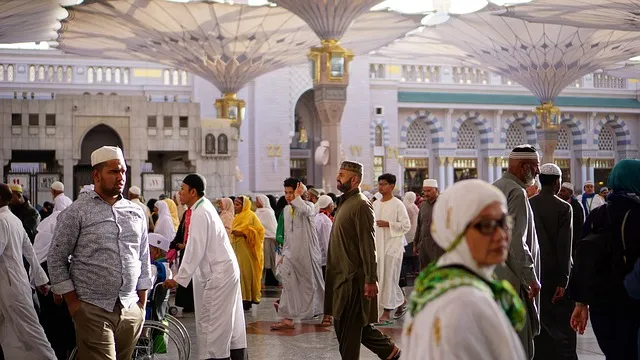
Before embarking on your pilgrimage to Mecca, it’s important to understand the key rituals involved in Hajj and Umrah. These religious journeys are steeped in tradition and hold immense spiritual significance for Muslims, serving as acts of worship that bring one closer to Allah. Whether you’re performing Hajj, the obligatory pilgrimage, or Umrah, a voluntary one, proper preparation will enhance your spiritual experience.
Hajj Rituals Overview
The Hajj pilgrimage is performed once a year during the Islamic month of Dhu al-Hijjah. The rituals of Hajj are spread over five days and include a series of specific acts of worship, each symbolic of key events in Islamic history. Here are some of the core practices:
- Ihram: Pilgrims begin by entering a state of purity called Ihram. Men wear two simple white sheets of cloth, while women wear modest, loose-fitting garments. This state symbolizes equality before Allah and the renouncement of worldly possessions. Pilgrims must refrain from certain actions, including arguing, wearing perfume, and cutting hair or nails during Ihram.
- Tawaf: One of the most important rituals in both Hajj and Umrah is Tawaf, which involves circumambulating the Kaaba seven times in a counterclockwise direction. The Kaaba, a cube-shaped structure at the heart of Mecca’s Masjid al-Haram, is considered the holiest site in Islam.
- Sa’i: After Tawaf, pilgrims perform Sa’i, which involves walking seven times between the hills of Safa and Marwah inside the Masjid al-Haram. This ritual commemorates the journey of Hajar (Hagar), the wife of Prophet Ibrahim (Abraham), as she searched for water for her son Ismail (Ishmael).
- Standing at Arafat (Wuquf): The pinnacle of Hajj is the day spent at Mount Arafat, where pilgrims stand in prayer, seeking forgiveness and mercy from Allah. This act is considered the most important aspect of Hajj.
- Mina and Stoning of the Devil: Pilgrims then travel to Mina, where they throw stones at pillars symbolizing the devil’s temptation of Prophet Ibrahim. This ritual signifies the rejection of evil.
Umrah Rituals Overview
Umrah can be performed at any time of the year and consists of fewer rituals compared to Hajj. The main practices include:
- Ihram: Just like Hajj, Umrah begins with the state of Ihram, marking spiritual purification.
- Tawaf and Sa’i: Pilgrims also perform Tawaf around the Kaaba and the Sa’i between Safa and Marwah.
- Shaving or Cutting Hair: The pilgrimage ends with pilgrims either shaving their heads (for men) or trimming a small portion of their hair (for women), symbolizing humility and renewal.
Additional Resources
For a more detailed guide on the rituals of Hajj and Umrah, visit these religious resources:
Understanding these rituals before your journey allows you to be spiritually prepared and perform them with sincerity. With this knowledge, you can ensure that your pilgrimage is both meaningful and fulfilling, drawing you closer to Allah.
Dress Code and Cultural Etiquette
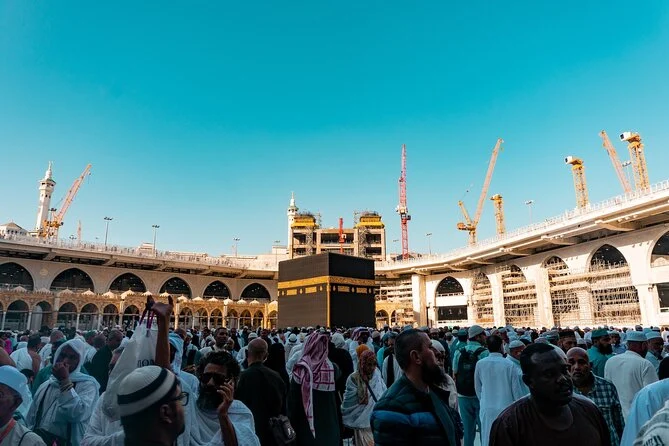
When visiting Mecca, adhering to the appropriate dress code and understanding local customs is essential to show respect for the religious and cultural norms of the city. Modesty is key, as Mecca is the holiest site in Islam, and all visitors must observe Islamic guidelines for attire and behavior, especially during pilgrimage.
Dress Code for Men and Women
For both men and women, wearing modest and conservative clothing is mandatory. The rules are especially strict for pilgrims in the state of Ihram during Hajj or Umrah.
- For Men: Men in Ihram are required to wear two white, unstitched pieces of cloth—one wrapped around the waist and the other over the shoulder. This attire symbolizes purity and equality before Allah. Outside of Ihram, men should wear loose, modest clothing that covers the body, avoiding sleeveless shirts and shorts.
- For Women: The Mecca dress code for women requires them to wear loose-fitting, non-revealing clothing that covers the entire body, except for the face and hands. Women are not required to wear a specific color but should ensure their attire adheres to Islamic principles of modesty. The hijab (headscarf) must be worn at all times, especially in public spaces.
Cultural and Religious Norms
Beyond clothing, visitors must observe several cultural customs in Mecca. One of the most important is prayer times, which occur five times a day. During these times, all business activity ceases, and locals head to mosques for congregational prayers. As a visitor, it’s respectful to avoid interrupting others and, if possible, join in the prayer or wait quietly during this period.
Interaction with locals should be approached with respect, especially between men and women. In conservative Saudi society, it is not common for unrelated men and women to engage in casual conversation or make physical contact. Avoid handshakes with the opposite gender unless initiated by them.
Respect for Islamic Customs
Respect for Islamic customs is paramount. Visitors should refrain from loud conversations, inappropriate behavior, or photography inside the sacred mosque without permission. It’s also important to remember that only Muslims are allowed to enter Mecca, and strict fines are imposed on non-Muslims attempting to enter the city.
By following the Mecca dress code for women and men and observing cultural customs in Mecca, pilgrims and visitors can show respect and sensitivity toward the sanctity of this holy city.
Accommodation and Travel Tips
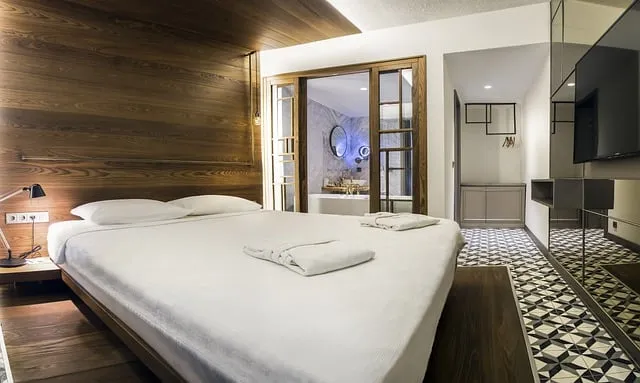
For those who prioritize proximity to the Masjid al-Haram, the holy mosque, staying in one of the best hotels near Haram is ideal. Luxury hotels such as the Makkah Clock Royal Tower, a Fairmont Hotel, and the Hilton Suites Makkah offer unparalleled views of the Kaaba and easy access to the mosque, making it easier to attend prayers and perform rituals. However, these hotels come with a higher price tag, especially during the Hajj and Umrah seasons.
If you’re traveling on a budget, consider staying in Al Aziziya or Al Ghazzah neighborhoods, which are slightly farther from the Haram but offer more affordable accommodations. Many budget hotels provide shuttle services to the mosque, ensuring that you can still reach the Haram with ease. Hostels and guesthouses are also available for pilgrims seeking basic amenities at lower costs.
Mecca Transportation Tips
Navigating Mecca is relatively straightforward, with several transportation options available for pilgrims and visitors:
- Public Transport: Mecca has an efficient bus system that connects major parts of the city to the Haram. SAPTCO (Saudi Public Transport Company) operates buses that are affordable and reliable.
- Taxis: Taxis are readily available and offer door-to-door service. Be sure to negotiate the fare before the ride, as some drivers may charge extra during peak times.
- Walking: If you’re staying close to the Haram, walking to the mosque is often the easiest and fastest option, especially during peak pilgrimage seasons when roads can get crowded.
Navigation Apps and Resources
For easy navigation in Mecca, several apps can help pilgrims find their way:
- Google Maps: Provides accurate directions and walking routes to the Haram.
- Haramain: A dedicated app that helps users navigate through Masjid al-Haram and offers prayer times and other religious resources.
- Uber: Uber is available in Mecca and provides a convenient way to book rides around the city.
By choosing accommodations that fit your budget and using reliable Mecca transportation tips, you can ensure a stress-free experience while performing your pilgrimage.
Health and Safety Precautions

Before embarking on your spiritual journey to Mecca, it’s essential to consider key health and safety precautions to ensure a safe and healthy pilgrimage. From mandatory vaccinations to staying hydrated in the heat, proper preparation can make your visit more comfortable and help prevent potential health risks.
Health Tips for Visiting Mecca
One of the first health steps to take is ensuring you have the necessary vaccinations required before visiting Mecca. The Saudi government mandates certain vaccinations, including:
- Meningococcal vaccine (for protection against meningitis).
- COVID-19 vaccine (with proof of full vaccination status).
- Other recommended vaccines include those for influenza and hepatitis A and B, depending on your medical history.
Staying Hydrated and Handling the Heat
Mecca experiences extreme temperatures, especially during the summer months, with daytime highs often exceeding 40°C (104°F). To avoid heat-related illnesses such as heat exhaustion or heatstroke, follow these health tips:
- Stay hydrated: Drink plenty of water throughout the day, even if you don’t feel thirsty. Carry a reusable water bottle to stay replenished, especially during long hours at the mosque or while performing rituals like Tawaf and Sa’i.
- Wear sun protection: Use sunscreen, wear a hat, and use an umbrella when walking outside, particularly during peak daylight hours.
- Rest in shaded areas: Take frequent breaks in shaded or air-conditioned areas to cool down and avoid heat exhaustion.
Safety Precautions in Mecca
In addition to staying healthy, maintaining personal safety is equally important. With millions of visitors in Mecca during Hajj and Umrah, crowded spaces can make it easy to lose track of personal belongings. Here are some key safety precautions in Mecca:
- Be aware of your surroundings: Whether in the mosque or in the city, stay alert to avoid theft or misplacement of valuables. Avoid carrying large amounts of cash and keep your important documents, like your passport, secured in a money belt or secure pouch.
- Travel in groups: If possible, stay close to fellow pilgrims or friends, especially during large gatherings or rituals.
- Emergency contacts: Make sure to save emergency contacts on your phone, including the contact information of your hotel and the local police or emergency services.
By following these health tips for visiting Mecca and adhering to basic safety precautions, you can ensure a safe, comfortable, and spiritually fulfilling pilgrimage experience.
What to Pack for Mecca
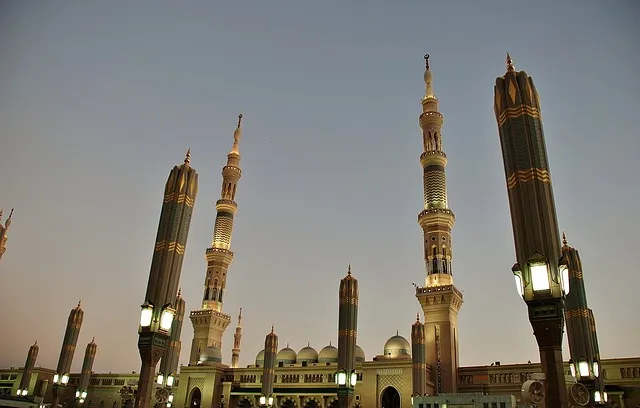
Packing the right essentials for your trip to Mecca is crucial to ensure a smooth and comfortable pilgrimage, whether you’re performing Hajj or Umrah. Here’s a checklist of must-have items to guide you on what to bring.
Essential Clothing
- Ihram: For men, pack two pieces of unstitched white cloth for Ihram, while women should pack loose, modest clothing in line with Islamic guidelines. Women should also bring an extra hijab for convenience.
- Comfortable Footwear: You’ll be walking long distances during rituals like Tawaf and Sa’i, so bring a pair of comfortable sandals or shoes. Slip-on shoes are ideal for quickly removing them before entering the mosque.
Personal Items
- Prayer Mat: Though prayer spaces are available, it’s useful to carry a small prayer mat, especially during outdoor prayer times.
- Personal Hygiene Items: Bring unscented soaps, shampoo, and other hygiene products since Ihram requires abstaining from perfumes. Don’t forget toothpaste, toothbrushes, and tissues.
- Medications: If you have any prescription medications, bring them along, as well as general health items like pain relievers, antiseptic creams, and first aid essentials. It’s also recommended to pack a basic health kit with items like bandages and hydration salts to manage minor health issues during your trip.
Important Documents
- Passport and Visa: Your passport, Mecca visa, and other travel documents should be packed securely and easily accessible. Make photocopies of important documents as a backup.
- Electronics: A mobile phone with a charger and a portable power bank is essential for navigation, communication, and capturing memories. You may also want to download Hajj and Umrah guide apps for additional support.
By packing these essential items for visiting Mecca, you’ll be well-prepared for your pilgrimage, making the journey more comfortable and spiritually enriching.
Tips for First-Time Pilgrims
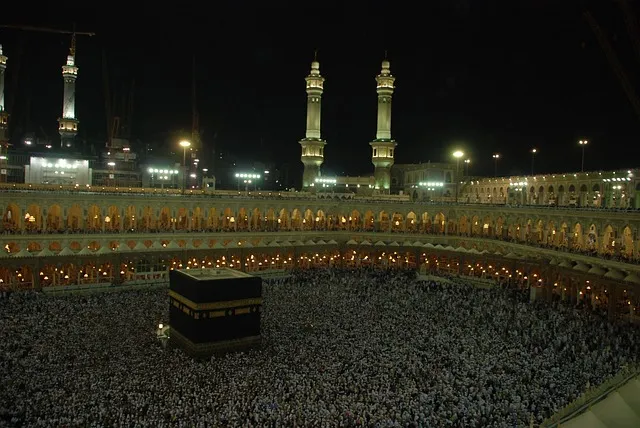
Embarking on a pilgrimage to Mecca is a life-changing experience, especially for first-time pilgrims in Mecca. To ensure your journey is spiritually fulfilling and logistically smooth, consider these practical tips.
Preparation and Mindset
Before your trip, it’s essential to prepare both mentally and spiritually. Engage in activities that enhance your understanding of the rituals, such as reading books or attending classes about Hajj and Umrah. This preparation helps ground you in the significance of the pilgrimage, making the experience more meaningful.
Practice patience and resilience, as crowds can be overwhelming. Long lines and the sheer number of pilgrims can test your composure. Remind yourself that every moment in Mecca is a part of the pilgrimage experience. Embrace the crowds as fellow worshippers all seeking the same divine connection.
Mecca Travel Tips for Beginners
- Stay Hydrated: The heat in Mecca can be intense, especially during the summer months. Carry a refillable water bottle to stay hydrated, and take breaks in shaded areas when necessary.
- Dress Comfortably: Wear comfortable clothing and footwear to ease your movement during rituals like Tawaf and Sa’i. You’ll be walking extensively, so good shoes are crucial.
- Use Technology Wisely: Download helpful apps to assist with navigation and prayer times. These can provide real-time updates and tips for efficient movement around the Haram.
- Join a Group: If possible, travel with a group or a guide who has experience in Mecca. This not only provides safety but also a support system during your pilgrimage.
- Reflect and Pray: Dedicate time for personal reflection and prayer. Use the moments of waiting to connect with your spirituality, reinforcing the purpose of your pilgrimage.
By following these tips, first-time pilgrims can navigate the unique challenges of Mecca with ease and grace, ensuring a rewarding spiritual journey.
Final Thought
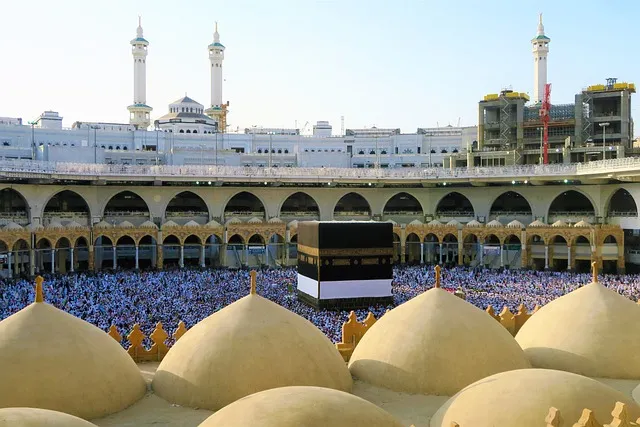
Visiting Mecca for the first time is a profound spiritual journey that requires thoughtful preparation and respect for the cultural and religious significance of the city. From understanding visa requirements and health precautions to packing essential items and being aware of local customs, every aspect plays a vital role in ensuring a smooth pilgrimage experience.
It’s essential for first-time pilgrims to be spiritually prepared, embracing the opportunity for reflection and prayer amidst the bustling crowds. Remember to practice patience and remain respectful towards fellow pilgrims and the sacred environment.
As you embark on this transformative journey, take these tips to heart and be ready for the unique experiences that await you in Mecca. If you found this blog helpful, consider sharing it with others who may benefit from these insights. Feel free to reach out with any questions or for further clarification on things to know before visiting Mecca. Your journey is just beginning, and every step you take brings you closer to a deeper understanding of your faith.


